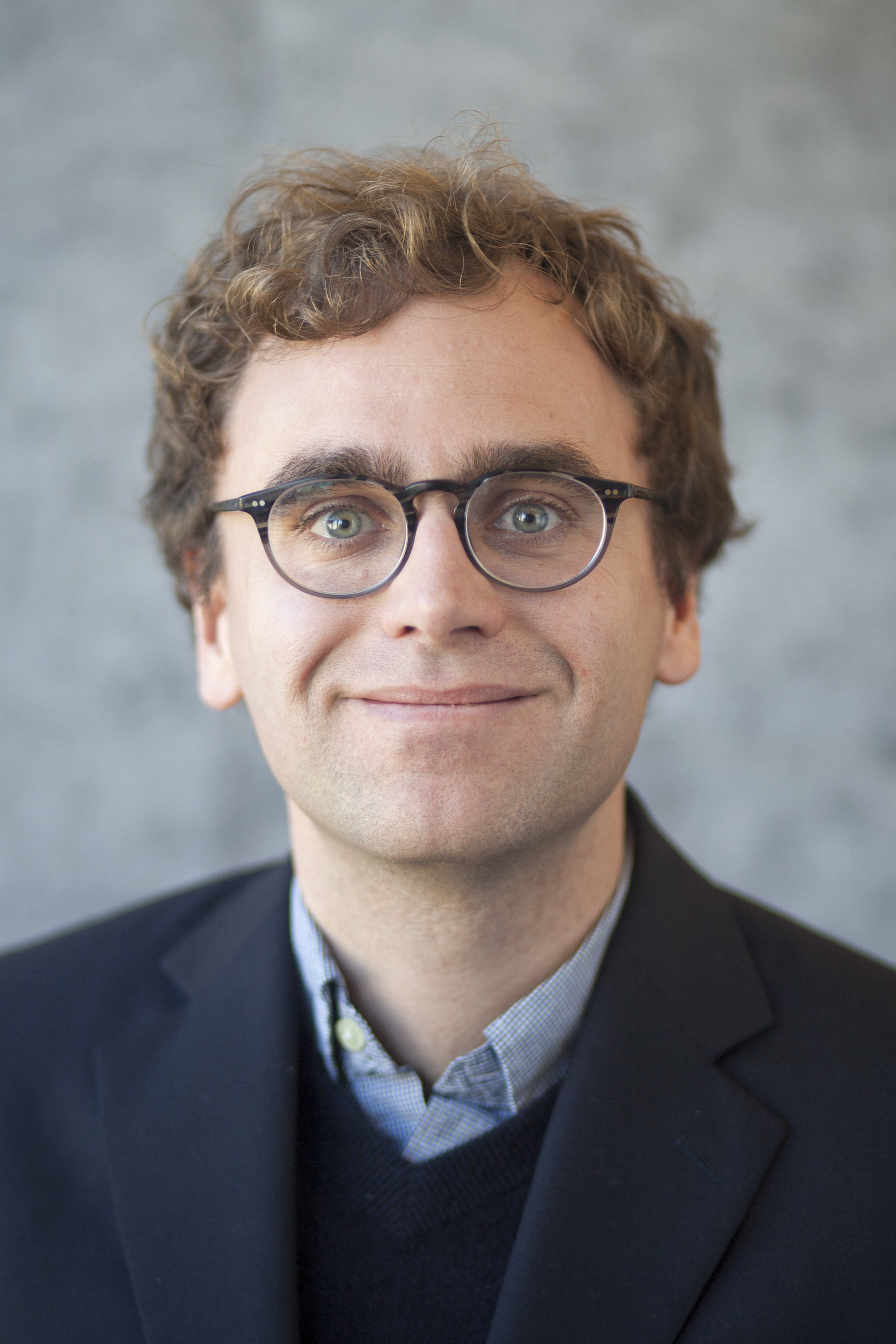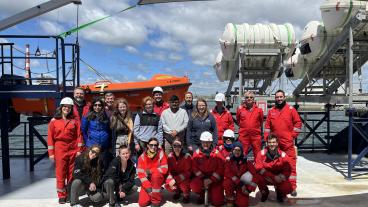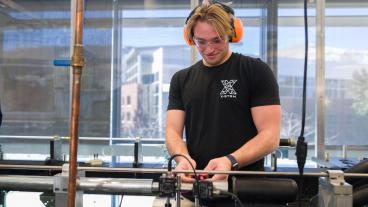 Nils Tilton, assistant professor of mechanical engineering at Colorado School of Mines, has received a National Science Foundation CAREER Award to develop a computational fluid dynamics model to improve efficient, low-energy options for wastewater treatment and desalination.
Nils Tilton, assistant professor of mechanical engineering at Colorado School of Mines, has received a National Science Foundation CAREER Award to develop a computational fluid dynamics model to improve efficient, low-energy options for wastewater treatment and desalination.
Tilton’s project, "Robust Numerical Modeling for Rational Design of Membrane Filtration Processes," will receive $547,364 over five years beginning in August.
“Shortages in potable water are creating a large demand for water treatment and desalination. California’s recent drought, for example, is motivating municipalities to invest in seawater desalination plants. Desalination technology is also now used to recycle municipal and industrial wastewater. The problem is that desalination requires a lot of energy, and the generation of that energy by power plants requires a lot of water. In the process, you also make more pollution, which exacerbates climate change and drought,” Tilton said. “Finding new, more energy-efficient ways of producing potable water is key to securing long-term water and energy security.”
Tilton’s work will focus on membrane separation processes, such as reverse osmosis and nanofiltration. Both offer promising low-energy solutions for desalination and wastewater treatment – that is, until the membranes get bogged down.
“You're basically filtering water by forcing it through a membrane that acts like a sieve – water goes through the membrane while salts and other contaminants are blocked,” Tilton said. “The problem is, all that stuff builds up on the membrane and increases the pressures needed to force the water through. With time, the salts also form a hard mineral scale, like the calcium deposits you get on shower walls, that impedes filtration, damages the membrane and increases maintenance costs.”
That retention of solutes, known as concentration polarization, can be tackled by patterning a mesh-like net of physical spaces on the membrane to alter the fluid flow at the surface. The impact of those feed spacers, however, is not well understood.
Tilton and his team will develop a new method for simulating the interactions between polarization, scaling and mixing due to feed spacers. Using the information they gather, they will then design better patterns for the meshes to minimize polarization.
Researchers will also collaborate with a 3-D printing company to look into the possibility of using 3-D printing to produce the meshes, as well as Newmont Mining, which will provide sample mine wastewater for testing.
Applications of membrane separation processes include the desalination of seawater and the treatment of municipal wastewater for potable reuse, as well as the recycling of the wastewater generated during hydraulic fracturing.
As part of the project, Tilton is also partnering with the Asian Pacific Development Center in Aurora to develop a new summer youth workshop. Aurora high school students would come to Mines for the workshop, learning computer programming using affordable Raspberry Pi computers. Mines students in the Multicultural Engineering Program would lead the workshop.
Tilton joined Mines in 2014 after serving as a postdoctoral research fellow at University of Maryland, College Park, and University of Aix-Marseille. He holds a PhD, master’s degree and bachelor’s degree in mechanical engineering from McGill University in Montreal.



